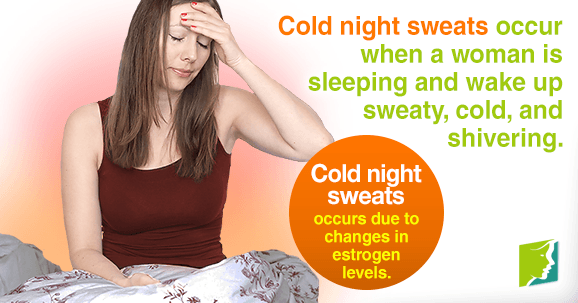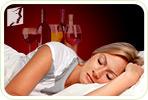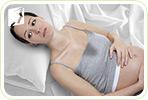Cold sweats during the night are a common menopausal symptom that are often experienced along with hot flashes during the day. While they do not constitute a serious medical problem, they can be incredibly uncomfortable and are likely to interfere with sleeping patterns, which in turn can lead to other health issues. However, cold sweats can often be easily managed with lifestyle changes, prescribed medication, or natural supplements.
What Are Cold Sweats?
People sweat for a number of reasons, including hot temperatures, embarrassing situations, or when they are exercising. Sweating is the body's natural way of controlling its temperature. However, menopausal cold sweats occur when a woman is sleeping and leave her chilly, shuddering, and very uncomfortable. Cold sweats are frequently experienced by menopausal women and are similar to hot flashes in that they involve rapid changes in body temperature. After experiencing cold sweats during the night, many women are unable to fall back to sleep and need to change their clothing. Both cold sweats and hot flashes are often accompanied by a number of other symptoms, including the following:
- Heart palpitations
- Dizziness
- Breathlessness
- Disorientation
- Anxiety
Some of these symptoms are related to the body's physical and emotional response to having a cold sweat or a hot flash, as it can leave a woman feeling embarrassed, confused, and short of breath. All symptoms should subside reasonably quickly, with most cold sweats and hot flashes lasting only a few minutes and the longest ones lasting up to 10 minutes. If symptoms go on longer than this for each individual episode, then a medical professional should be consulted.
What Causes Cold Sweats?
There are multiple causes of cold sweats besides sleeping in a hot environment. However, the most common cause - especially when cold sweats occur before, during, or after menopause - is usually a hormonal imbalance caused by decreased levels of the main female sex hormone, estrogen.
The fluctuating levels of estrogen influence the body's heat regulator and often lead to a mistaken reaction in its automatic response. The hypothalamus incorrectly senses that the body is overheating and releases a signal that makes the blood vessels near the surface of the skin dilate, and perspiration occurs in order to release heat. However, because the sufferer is not actually overheating, she is often left feeling cool as a result of these processes.
How Can I Avoid Cold Sweats?
Although cold sweats can occasionally be indicative of an underlying medical problem, they are not usually a cause for serious concern. Consequently, a healthy body can often be the best cure for women suffering from frequent cold sweats and can help to minimize the number of episodes a woman experiences. Although a lifestyle modification may not always be enough to prevent severe cold sweats, it should always be a part of any therapy. A menopausal women should:
- Eat a well-balanced diet including protein, dairy, fiber, fruits, and vegetables
- Avoid spicy food or hot drinks before bed
- Keep the bedroom cool
- Wear moisture-wicking pajamas
- Exercise regularly
- Drink the equivalent of eight cups of water a day and keep a drink in the bedroom
- Refrain from smoking
If a change in lifestyle does not help ease cold night sweats, women should consult a medical practitioner about alternative and conventional therapies. Because cold night sweats are caused by an imbalance in estrogen levels, there are drug therapies and natural remedies that may assist the sufferer. Click here for more information about treatments for night sweats.
Sources
- The National Institute of Health. "Signs of the Menopausal Transition" www.nih.gov
- Boston Women's Health Collective. "Hot Flashes, Night Sweats and Sleep Disturbances". Our Bodies, Ourselves, 2006.
- Von Muhlen, DG, et al. "A community-based study of menopause symptoms and estrogen replacement in older women". Maturitas. Sept 1995; 22(2):71-8.




